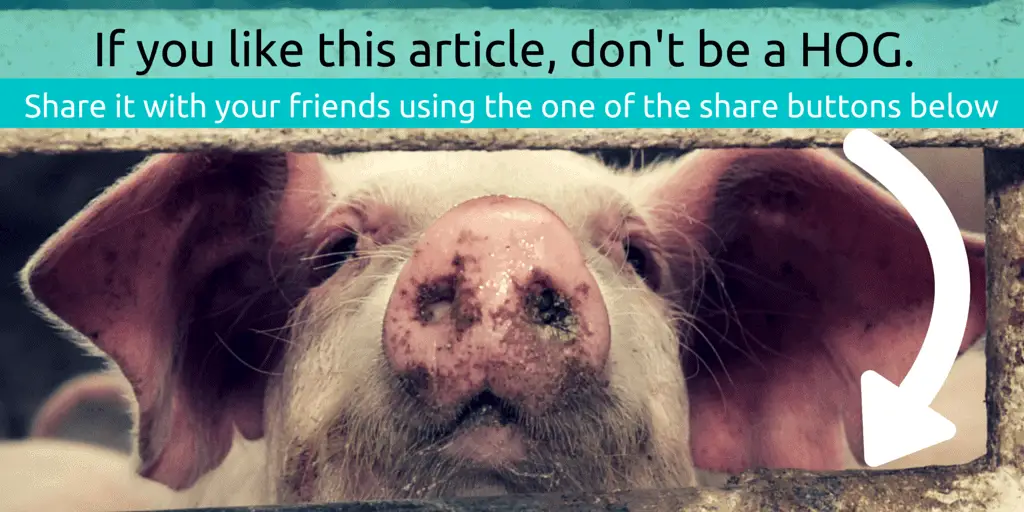Content marketing requires that you publish a lot of great content. And specifically you’ll need to publish content that demonstrates your (or your company’s) expertise on a particular niche topic. The idea is that you draw people who find that content useful and interesting toward your company, teach them that your are an authority on the topic, and through the process develop trust and over time a relationship, which is the foundation for a sale.
But what if you are not much of a writer? Or you find generating content ideas tedious? Or you have no time to pen the next great post? Or perhaps you don’t have a budget to hire a journalism grad or professional writer to produce content for your brand? No problem. Just use these 10 simple ideas to generate content quickly without much effort.
1. Top 5 and Top 10 lists
Go find the best resources on a topic on the internet that can be pulled into a list. 10 things you need to know about X, or 5 must have tips on how to Y. Find web sites that publish the material. Describe their tips in a few sentences. Put a link to each one and list them. Write a brief intro and BOOM!: You’ve got one awesome article ready to publish.
2. FAQs
That’s Frequently Asked Questions. Here’s an example of a great FAQ. List 10 questions that your customers ask your sales reps. Then answer them. Don’t be self promoting. ie Q: Who is your favorite plumbing company. A: Ours! More like: Q: What’s the best way to unclog a garbage disposal. A: We like this Youtube video for do it yourselfers (LINK) but give us a call and we can talk you through it or send one of our pros out to get it done for you.
3. Retop a rewrite
This is an old journalism trick that editors teach young reporters at newspapers. Find a piece of news or an article (usually from a competitor in the media business) that is of interest to your customer base. Rewrite it into a summary using your own words. Do not use the quotes – paraphrase these. BTW – No copying and pasting – that’s plagiarism. ie. Source: “Apple announces the ultra thin new iPhone 9” Rewrite: “Thin is in – but some say breakable – for the latest smartphone from Apple”
4. Write definitions
Pull together lingo or or complex terminology from your business or market and define them. Over time build a glossary of terms that is specific to your industry and publish this on your site.
5. Transcribe an interview
Call a seasoned know-it-all n your shop and record an interview on a topic her or she is expert in. Or call a industry colleague or supplier. Ask them 10 questions about an area of expertise. Transcribe the answers and clean up the Ummms and Errrs and turn it into an article with a brief introduction. ie. “Have you ever wondered how to organize a bedroom closet? We called Susan Littleton, a professional closet organizer, who provided the following tips on how to optimize space in a bedroom walk-in closest.”
6. Record an interview
Too busy to transcribe an interview? Record it on Skype and post the audio or video file on your blog and write a brief description to introduce it. Use Recorder, which is an add-on app from Skype or try Rev.com to do online transcription.
7. Photo slideshow
Explain how to do something using a slide show. Grab your phone and take step by step pictures and describe each step as captions. Niche “how to” content is hugely in demand.
8. This week in history
Go back in time five years, 10 years or further and pull up an old article or post or newspaper clipping or even a photo that marks a historic day that is of interest to your audience. Rehash the piece into a retrospective or post a series of old pictures.
9. Aggregate great tweets
Use Twitter’s search engine to find people who are experts on a topic and aggregate their tweets together. (Use a screen grab software like Snag-It) ie. Top 5 hurricane preparedness tips from smart people on Twitter!
10. Social media interviews
Speaking of Twitter post a request on Twitter, Facebook or Instagram for help with a question that everyone wants to be answered – that your audience will love. Aggregate the best answers into a single post. Credit the contributors and link to their social media accounts.
11. Directory Listings
If you have an information resource that will help people find what they need, like a directory of industry products, people or associations, or even a listing of relevant businesses you recommend – like this funeral homes near me website – then publish the resource on the web. The content may not be very sexy (like funeral homes in Canada) but if it is highly useful to people and hard to otherwise find then you will draw in people who need it and it will result in generated traffic.




 world. Like the guys who work for the National Enquirer. It is the No.5 most read publication in the world.
world. Like the guys who work for the National Enquirer. It is the No.5 most read publication in the world.




